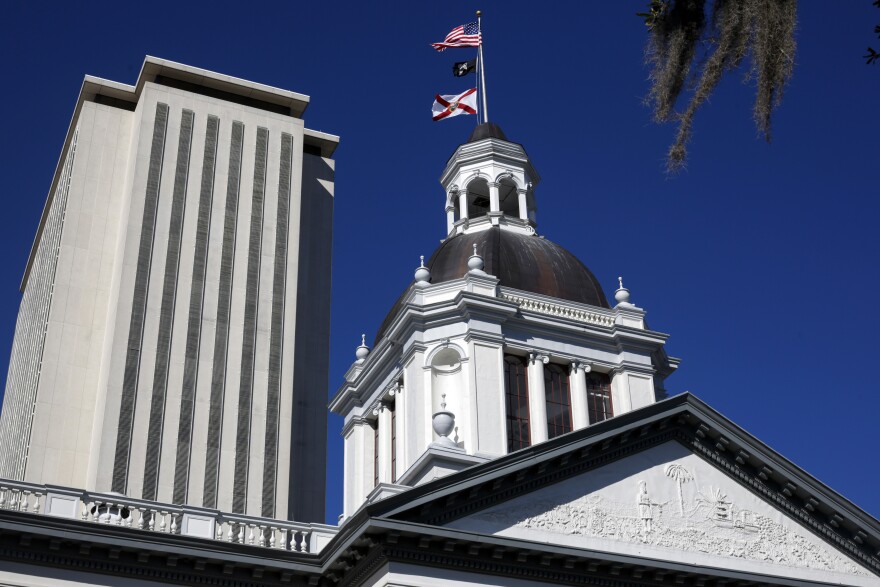As lawmakers Tuesday approved covering the costs of thousands of backlogged applications, several House members said more money needs to be approved next year for a program to help residents make home improvements to reduce insurance premiums.
The House voted 110-0 to approve a bill (HB 1C) that includes covering more than 17,000 already-submitted applications to the My Safe Florida Home program. The bill also includes providing additional assistance to victims of Hurricane Idalia and has a total price tag of $416 million.
Rep. Lindsay Cross, D-St. Petersburg, called it “prudent” to examine how to expand the My Safe Florida Home program. Tuesday’s vote came on the second day of a special legislative session, with the Senate expected to take up the bill Wednesday.
“In my district and across the state, Floridians are experiencing flooding during hurricanes, during 100-year storm events and even during sunny-day high-tides,” Cross said. “Expanding this program to allow Floridians to mitigate potential flood damage ensures that people can stay in their homes and are not priced out of their neighborhoods and communities. There are simple and affordable measures like dry-proofing your home or installing sewer backfire pipes that can help so that when floodwaters come in, sewage doesn't come along with it.”
The My Safe Florida Home program includes matching grants up to $10,000 to help pay for such things as reinforcing roof-to-wall connections, upgrading roof coverings and upgrading doors and windows, according to the program’s website.
With the Insurance Information Institute putting the average cost of Florida’s home insurance at $6,000 a year, the My Safe Florida Home program has resulted in average premium discounts at just over $1,000 among homeowners who have disclosed their discounts, according to legislative staff analysis.
The bill would provide an additional $176.17 million for the program. Bill sponsor Jason Shoaf, R-Port St. Joe, said the money is needed because lawmakers “didn’t realize how many people would want to take advantage of the program.”
“This money is to clear the waitlist,” Shoaf said.
Additional money could be considered later, Shoaf said.
“Expanding this program to allow Floridians to mitigate potential flood damage ensures that people can stay in their homes and are not priced out of their neighborhoods and communities. There are simple and affordable measures like dry-proofing your home or installing sewer backfire pipes that can help so that when floodwaters come in, sewage doesn't come along with it.”Rep. Lindsay Cross
House Speaker Paul Renner, R-Palm Coast, told reporters after the vote that the program will get a wider review during the regular legislative session, which will start Jan. 9. Among potential ideas is making condominium owners eligible.
Renner called the program “more common sense” than “propping up” the insurance industry through providing reinsurance, which is critical backup coverage.
"You're helping the consumer directly. You're making it so that they have if there is a hurricane ... the severity of the damage, meaning the claim amount that we all get to pay for and increased premiums, will be lower, because now they've got tie-downs. Now they have hurricane windows. Now they have a garage that doesn't blow in with tropical storm winds. All these things then save big dollars by spending some little dollars today," Renner said.
During two special sessions last year, lawmakers made available $3 billion to help with reinsurance, which Renner said “we were kind of forced into doing.”
Revived in 2022 amid major problems in the property-insurance market, the My Safe Florida Home program received $115 million at the time for grants. An additional $100 million went into the program as part of the state’s fiscal 2023-2024 budget, which took effect July 1.
As of Oct. 26, with 20,979 My Safe Florida Home grants approved, more than $209 million has been obligated to homeowners, according to a House staff analysis. Meanwhile, 17,617 grant applications awaited funding. Also, inspections had been completed on 85,687 homes, with another 12,310 in the pipeline.
The program was initially created in 2006 with $250 million but did not receive additional funding in the ensuing years.
In addition to the My Safe Florida Home program, the bill would assist the agriculture industry after Hurricane Idalia and help local governments pay storm-recovery bills.
The proposal offers $75 million to a program that provides low-interest or interest-free loans to agriculture and aquaculture producers, $37.5 million to help timber owners in counties affected by the hurricane, and $50 million for hurricane repair and recovery projects in counties that received Federal Emergency Management disaster designations.
The bill also would provide $25 million to the Florida Housing Finance Corp. for what is known as the Hurricane Housing Recovery Program in the designated counties, while tax breaks would be offered on agricultural equipment that couldn’t be used in the two months after the storm; on the purchase of fencing and building materials purchased to make repairs after Idalia; and on fuel used for agricultural shipments and debris removal.




